‘La Cocina’: the kitchen is a chaotic melting pot of contemporary culture in Alonso Ruizpalacios’ new film
The director considers issues including race and imagination, set against the backdrop of a frantic commercial kitchen, in new film ‘La Cocina’
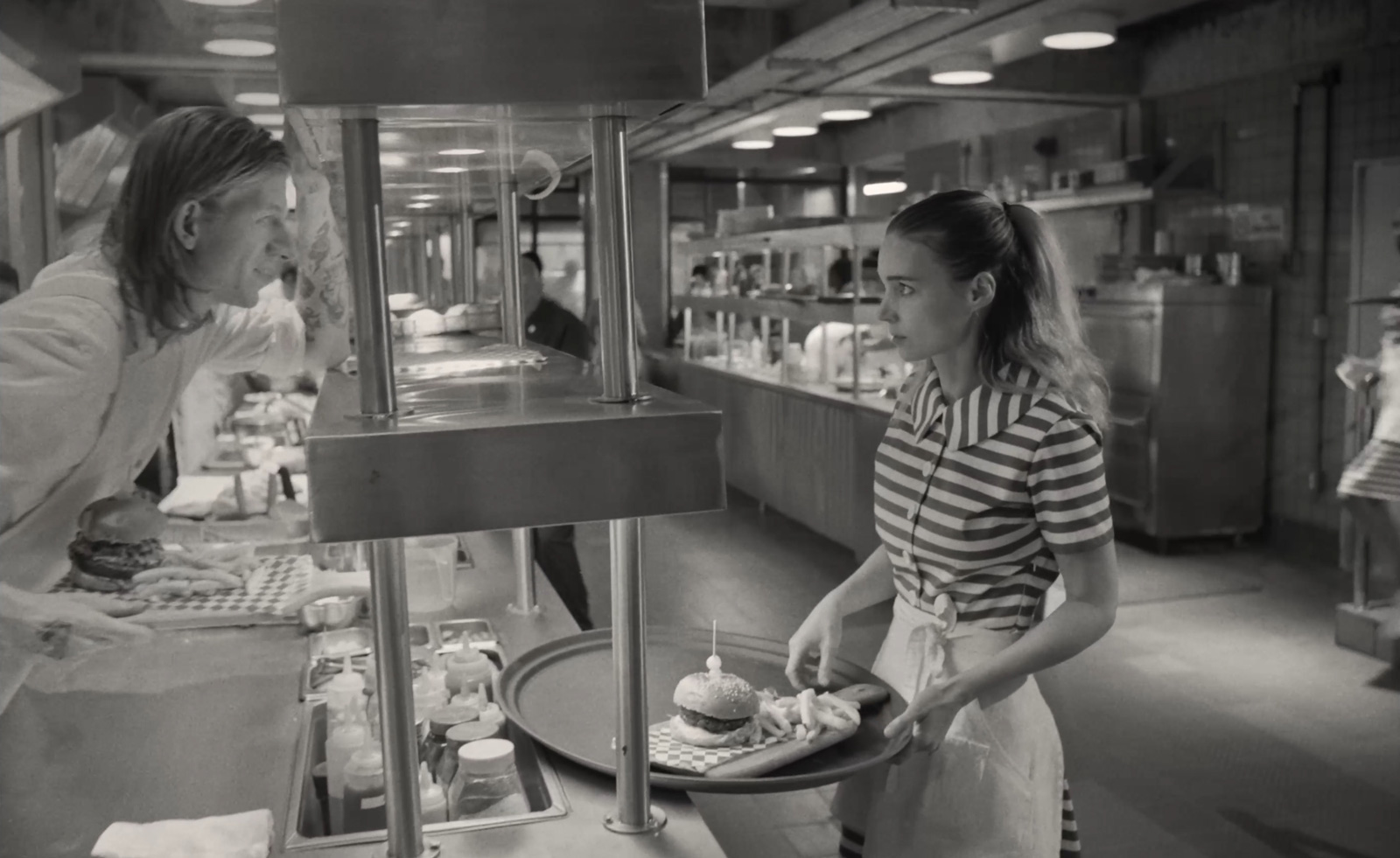
When a customer orders a cherry coke in Alonso Ruizpalacios’ new film, La Cocina – a politically pertinent, oftentimes feverishly paced reworking of Arnold Wesker’s 1957 play, The Kitchen – it sets in motion near inevitable chaos. The drinks machine is broken (just a hairband prevents it from flooding the entire kitchen), so the moment a preoccupied waitress pushes the lever, it’s game over: the sticky brown liquid starts gushing, making a paddling pool of the floor. A chef shouts at the waitress, another waitress stumbles over a kitchen porter then immediately begins to cry (it’s her first day); two others are celebrating something unrelated with a kiss across the work stations, and eventually the head chef will break into song. The ticket machine continues to beep throughout, spitting orders for burgers, pizzas and cheesecake.
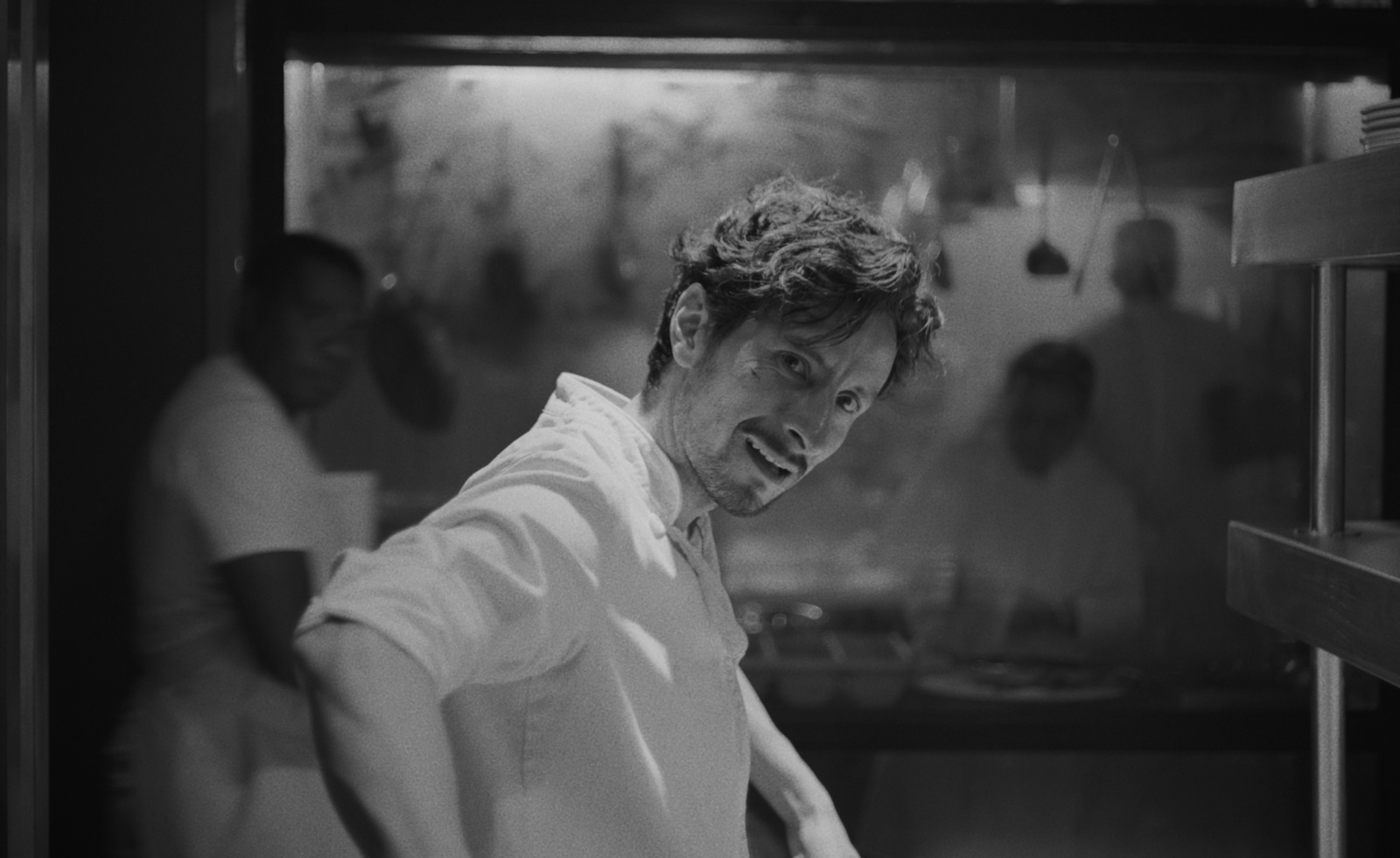
Ruizpalacios was initiated into the pressure cooker of the commercial kitchen in the early 2000s, when he got a job at the central London tourist trap known as Rainforest Cafe, to subsidise an acting degree at the prestigious Rada. Around the same time, he read Wesker’s play. ‘I was struck by the complex caste system that still exists in kitchens, and that are an essential part of what keeps them functioning,’ he observed in a director’s statement that accompanies the release. ‘As with the crew in a ship, hierarchy is not something that is taken lightly behind those swinging restaurant doors.’ Indeed, it’s a prime venue for storylines that riff on the sociopolitical, and the filmmaker’s contemporary retelling addresses immigration, abortion, racism and capitalism. Leaning into this latter arena and the gulf between work and living, early on he sets the tone by inserting a passage from Henry David Thoreau’s 1863 essay, Life Without Principle.
More frenetic episodes follow, punctuating the picture’s two-hour, 20-minute run time (like the foul-mouthed but wholly playful chorus that announces the lunch shift, and the ostentatious self-sabotaging performed by a single chef at the film’s finale), while a series of softer moments offer temporary tenderness. Swapping London for New York, Ruizpalacios sets the action in a fictional Times Square restaurant called The Grill. Here, the waiting staff (exclusively female, largely but not solely white) don politely striped dresses and carry aggressively large trays, while the kitchen’s workforce are predominantly immigrants from South America, the Caribbean and North Africa, mostly undocumented. Burger guy Max (Spencer Granese) is the lone white American back of house, and his dissatisfaction at the situation he makes clear with a sharp tongue and uncomfortable body language.
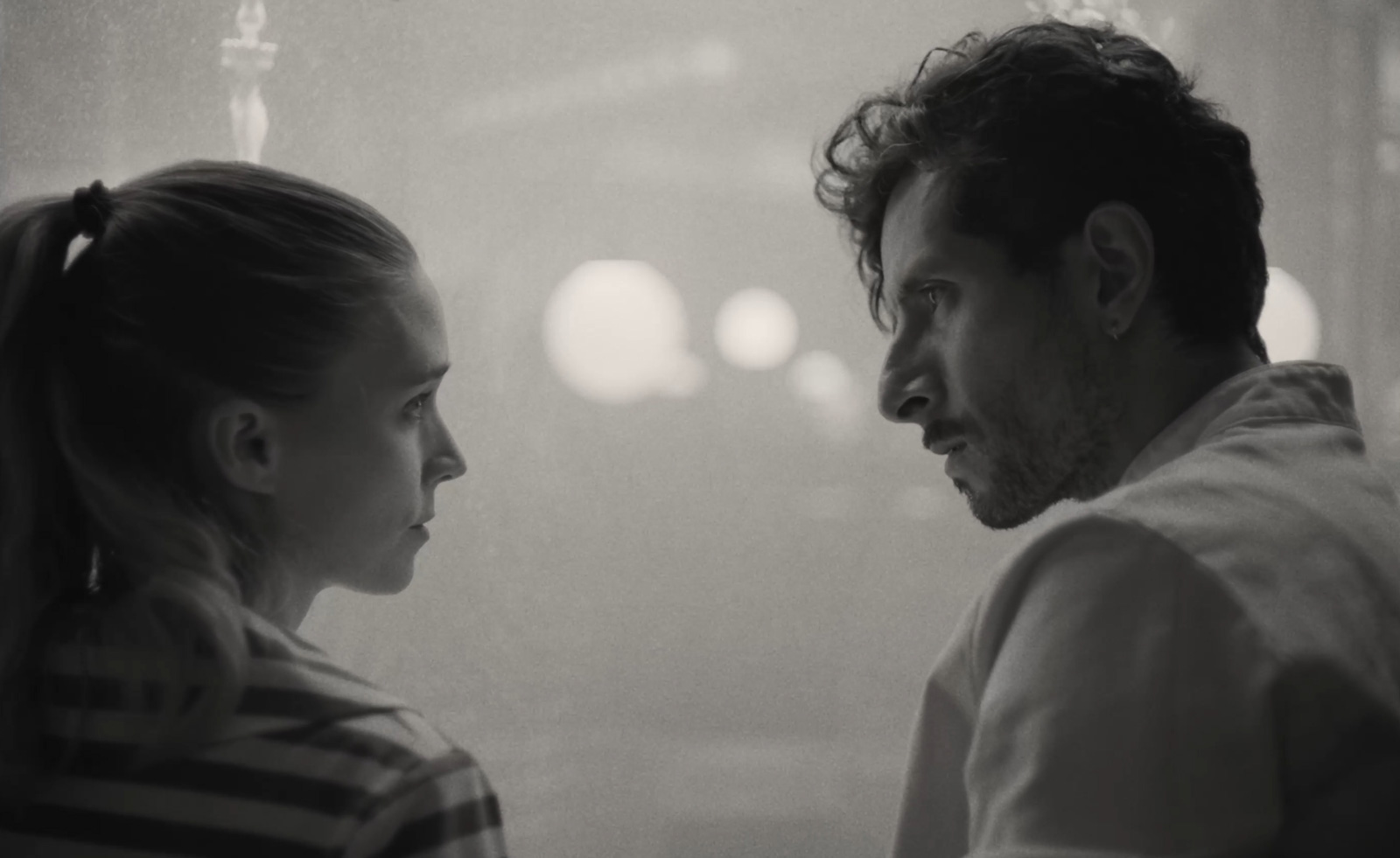
Newcomer Estela, played by Anna Díaz, leads us to The Grill and subsequently the nucleus of Ruizpalacios’ story: her first day introductions provide a tour of the various work stations and their occupants, and eventually we arrive at Pedro (Raúl Briones, familiar from the director’s 2021 picture, A Cop Movie). Alongside anguish, she has brought him old photographs and, most significantly, hoja santa leaves from his mother’s garden in Puebla, which he will use in the film’s single concession to food porn, delicately constructing a sandwich for his girlfriend Julia (Rooney Mara), a waitress. The pair’s romance is La Cocina’s central thread, and begins with a meet-cute that recalls Baz Luhrmann’s Romeo & Juliet, the warmth and smiles of the iconic fish tank scene from 1996 replaced by a frosty reception and industrial tank of lobsters to be served at lunch. It quickly transpires this isn’t actually their first meeting at all, and she is pregnant with his child.
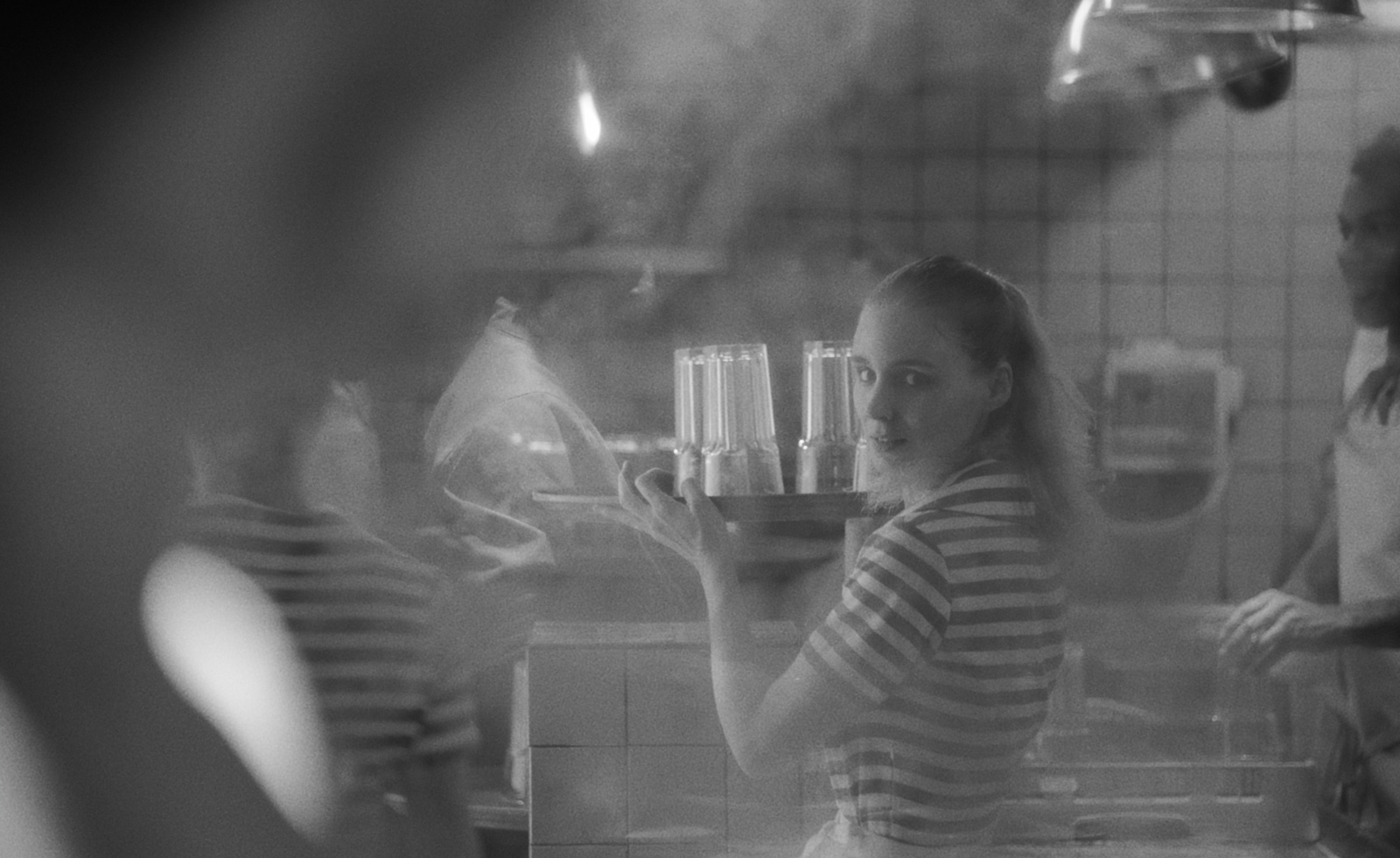
The film is elegantly shot in black and white, which lends it a clever atemporal quality (see also the absence of mobile phones and the persistent smoking by all parties), additionally underscoring the weight of the smaller choices Ruizpalacios makes in manufacturing a portrait of the invisible workforce that the film aims to highlight. The streaming liquid, for example, could have just as easily been regular coke, but the cherry factor speaks to the all-American façade being sold by The Grill. Elsewhere, Max’s more elaborate uniform, which features an armour-like apron, further distinguishes him as separate from his colleagues, hinting at career aspirations less readily available to those around him.
Perhaps the most telling background work, however, is reserved for the screensaver on a manager’s computer: as Pedro is interrogated about some missing money, a maze on the screen beside him replicates hitting a wall, mirroring the situation for so many in the building. ‘The world is a place of business. What an infinite bustle!’ Thoreau once wrote. ‘I am awakened almost every night by the panting of the locomotive. It interrupts my dreams.’
La Cocina is released UK-wide on 28 March 2025
Wallpaper* Newsletter
Receive our daily digest of inspiration, escapism and design stories from around the world direct to your inbox.
Zoe Whitfield is a London-based writer whose work spans contemporary culture, fashion, art and photography. She has written extensively for international titles including Interview, AnOther, i-D, Dazed and CNN Style, among others.
-
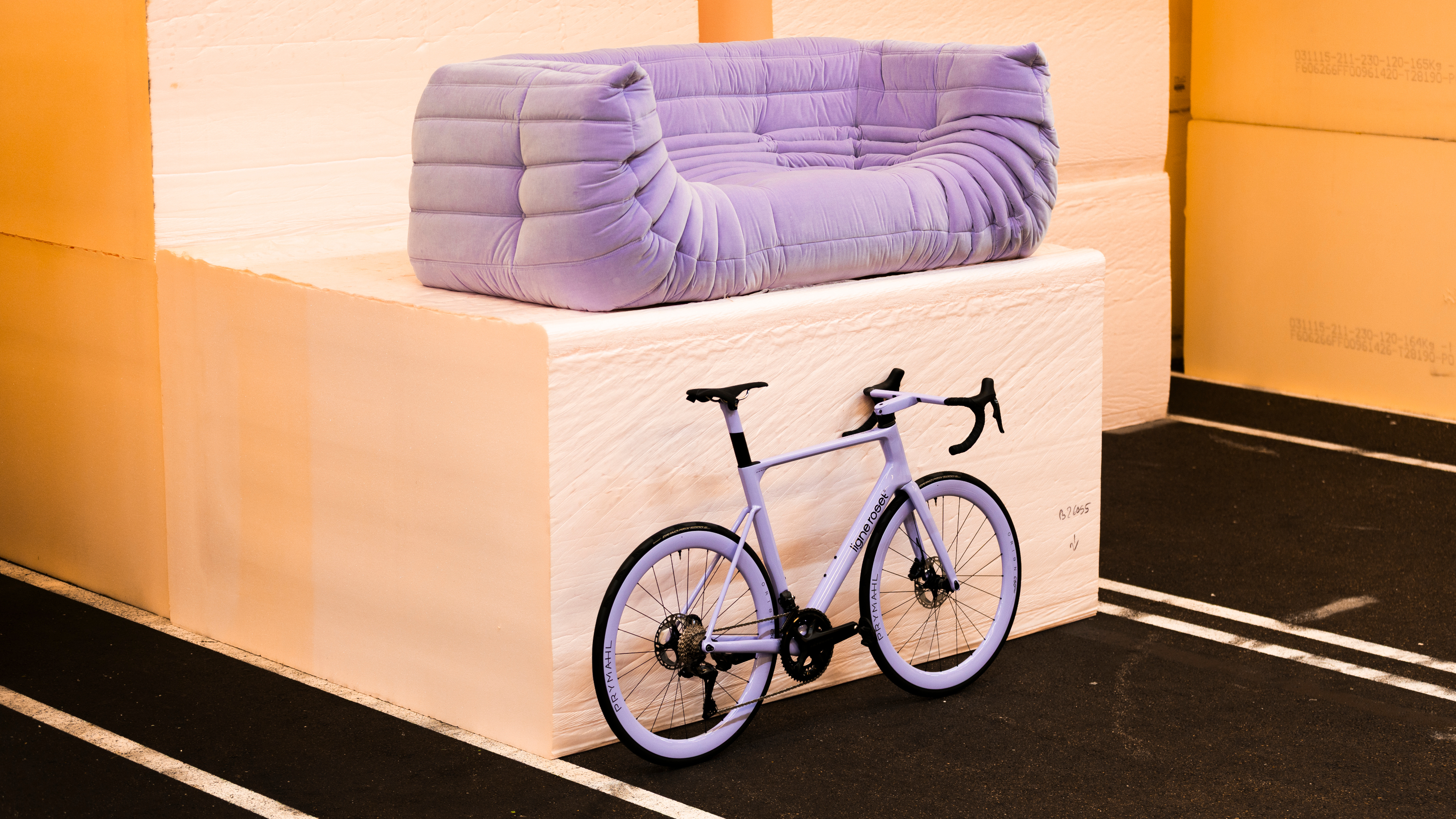 Ligne Roset teams up with Origine to create an ultra-limited-edition bike
Ligne Roset teams up with Origine to create an ultra-limited-edition bikeThe Ligne Roset x Origine bike marks the first venture from this collaboration between two major French manufacturers, each a leader in its field
By Jonathan Bell
-
 The Subaru Forester is the definition of unpretentious automotive design
The Subaru Forester is the definition of unpretentious automotive designIt’s not exactly king of the crossovers, but the Subaru Forester e-Boxer is reliable, practical and great for keeping a low profile
By Jonathan Bell
-
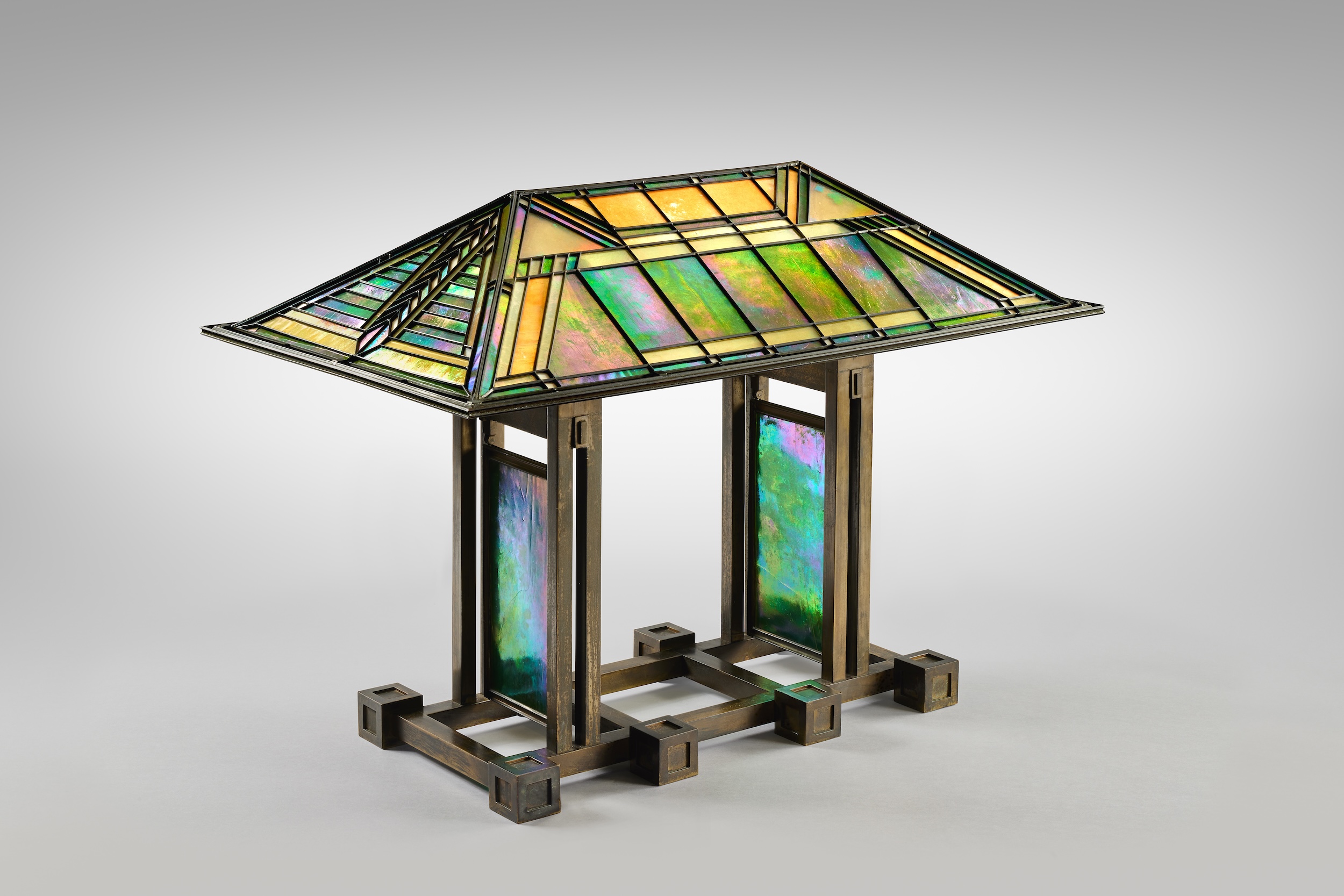 Sotheby’s is auctioning a rare Frank Lloyd Wright lamp – and it could fetch $5 million
Sotheby’s is auctioning a rare Frank Lloyd Wright lamp – and it could fetch $5 millionThe architect's ‘Double-Pedestal’ lamp, which was designed for the Dana House in 1903, is hitting the auction block 13 May at Sotheby's.
By Anna Solomon